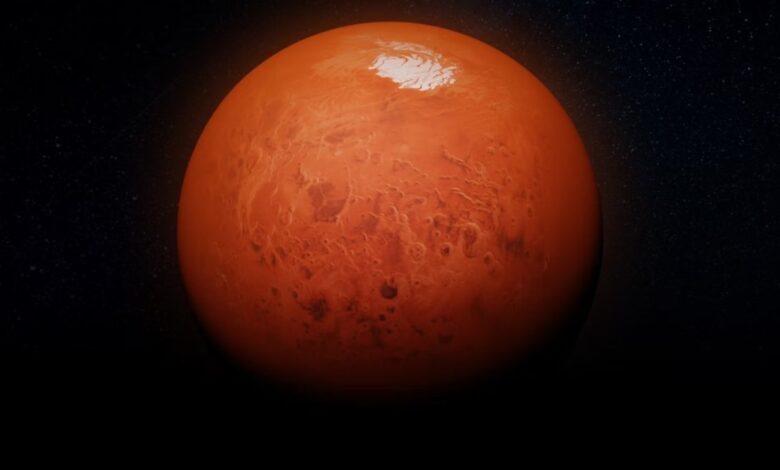NASA finds potential signs of ancient life in Mars rock samples: Details revealed

NASA’s Perseverance rover has made a remarkable discovery on Mars, observing a rock with intriguing chemical signatures and structures that could hint at ancient microbial life. While it’s not definitive proof of past life on Mars, the finding has generated considerable excitement among scientists studying the red planet.
Read more: iPhone 15 Pro Max Gets Discount on Amazon Ahead of iPhone 16 Series Launch, See Details
Discovery Details
On July 21, the Perseverance rover collected a sample from an arrowhead-shaped rock in the Neretva Vallis riverbed, which was formed long ago when water flowed into the Jezero Crater. The science team operating Perseverance has nicknamed the rock “Chevaya Falls.” Using the rover’s SHERLOC (Scanning Habitat for Organics & Chemicals) instrument, the team conducted multiple scans of the rock. These scans revealed distinctive spots of iron and phosphate, indicating certain chemical reactions that, on Earth, are often associated with the fossil record of subsurface microbial life.
“These spots are a big surprise,” said David Flannery, an astrobiologist at Queensland University of Technology and a member of the Perseverance science team. “On Earth, features like these in rocks are often associated with the fossil record of microbes living underground.” However, he stressed that the discovery is not direct evidence of past microbial life on Mars.
Meaning and next steps
The presence of iron and phosphate in the rock, along with organic chemicals, suggests a plausible energy source for microbes and is consistent with the possibility of ancient life. However, confirming extraterrestrial life involves a rigorous seven-step process known as the CoLD (Confidence in Detection of Life) scale. Detecting these spots is just the first step. Scientists still need to rule out non-biological possibilities and identify other signals to confirm the presence of extraterrestrial life.
NASA’s Perseverance rover has run out of instruments to study Chevaya Falls. “We’ve been lasering and X-raying that rock and photographing it day and night from almost every angle imaginable,” said Ken Farley, Perseverance’s project scientist. “Scientifically, Perseverance has nothing more to contribute.”
Read more: BSNL 4G rollout delayed again, government-backed telco now targets June 2025 rollout
The discovery of Chevaya Falls adds momentum to NASA’s efforts to plan a Mars Sample Return mission. While previous plans have been deemed too costly, the space agency is exploring alternative, cost-effective means of returning Martian samples to Earth for detailed analysis. Rocks like Chevaya Falls underscore the importance of such missions, as studying them in advanced laboratories on Earth could yield significant insights into the potential for ancient life on Mars.
One more thing! We are now on WhatsApp Channel! Follow us there so you never miss any updates from the tech world. To follow HT Tech channel on WhatsApp, click here to join now!




